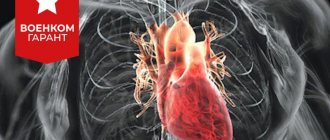Neurology
- a section in modern medicine dealing with the study of diseases of the nervous system - central and peripheral. A neurologist diagnoses and treats diseases of the nervous system, and also prescribes preventive treatment.
The structure of the human nervous system includes:
- Brain
- Spinal cord
- Nerve bundles
- Nerve plexuses
- Nerve endings and fibers
The entire system consists of nerve cells called neurons. If the functioning of neurons begins to malfunction, then inflammation occurs in the central nervous system (CNS), which can lead to serious problems for the entire body as a whole.
What does a neurologist treat?
The list of diseases of the nervous system is quite wide and varied. Most often, these diseases are based on the following reasons:
The most common reason for visiting a neurologist is headaches.
, and in particular,
migraine
. This disease is characterized by severe pain in the temporal lobe of the head. You can also consult a neurologist with the following diseases or symptoms:
Unfortunately, this is not the entire list of diseases and symptoms, but only common ailments for which people consult a neurologist.
Which doctor prescribes an MRI of the brain?
The study is prescribed by a neurologist
There are several ways to go through the procedure:
- receive a referral for research at the clinic at your place of residence;
- contact a neurologist at a medical center;
- take the test yourself at a diagnostic clinic.
The doctor can give a referral for a free examination as part of compulsory health insurance. There must be strong indications for such a prescription (suspicion of a tumor, etc.). The procedure may take some time.
When a patient contacts a neurologist at a private medical center, the doctor assumes responsibility for the diagnosis and treatment of the disease. The doctor explains why and why an MRI test is needed, directs you to the study and gives explanations and recommendations on the results. In this case, you will have to pay for consultations and procedures.
If you go to a diagnostic center on your own, you need to find out if they do an MRI of the head. Focusing only on the price of the test, you can get uninformative images if the institution uses a device with low resolution. Based on the results of the study, a radiologist's report will be issued, but to make a diagnosis you need to contact a specialized specialist. Only a doctor can understand why and when to do an MRI of the brain. Most often this is a neurologist, but it can also be any other specialist, such as an ophthalmologist or endocrinologist.
What symptoms should you consult a neurologist for?
It is important to know that disturbances in the functioning of the central nervous system occur slowly and imperceptibly. For this reason, many people are not even aware of the serious danger of developing a particular disease, for example paralysis, psychosis or deterioration of intelligence. In older people, the risk of developing various diseases associated with the nervous system increases significantly.
If you notice one of the following symptoms, immediately contact a neurologist:
To avoid various types of diseases of the nervous system, you need to lead a healthy lifestyle and follow basic rules:
Classification of headaches and its treatment.
Classification of headaches and its treatment.
December 14, 2018
Headache is the most common complaint among patients visiting a neurologist. According to the classification, there are 2 types of headaches: primary and secondary. To the primary headache
This includes tension headaches, migraines, trigeminal neuralgia, and cluster headaches. Secondary headaches can occur due to neck pathology, abuse of analgesics, after head injuries, or against the background of infections. Let's look at the most common options:
Migraine
usually characterized by a severe throbbing headache, accompanied by nausea, intolerance to bright light and strong odors, and general weakness.
The pain is usually one-sided. The duration of the attack can be from several hours to three days. Tension headaches
are most often mild, but can recur regularly and last up to a week.
The nature of the pain is pressing or squeezing, and can spread both to the entire head and to part of it - the back of the head, forehead, crown. This type of pain occurs in those who, due to their occupation, often experience prolonged muscle tension (forced posture while working at the computer, driving a car, uncomfortable position while sleeping), and are constantly exposed to psycho-emotional stress. Cluster headache
of a pulsating nature, usually one-sided, in the forehead or eye, sometimes accompanied by redness, swelling, and lacrimation.
Attacks usually last from 20 minutes to an hour and a half, but in severe cases they can be repeated several times a day for several weeks. Headache caused by infections
is usually accompanied by fever and chills.
With meningitis, the headache
is acute, throbbing, with a temperature of 37.5 degrees or higher, and vomiting.
Post-traumatic headache
occurs when there is a bruise or concussion of the brain, damage to the skull or cervical spine.
The nature and location of pain directly depend on the type of injury. Sinus headaches
occur due to inflammation in the sinuses and are usually accompanied by swelling of the mucous membranes, nasal congestion and runny nose.
This type is characterized by painful sensations in the frontal and paranasal parts of the face. Trigeminal nerve headaches
usually last only a few seconds but are very painful.
Pain occurs in any area of the face while eating or talking. The most common causes of damage to the trigeminal nerve are caries, stomatitis, malocclusion, and sinusitis. To determine the cause of the headache, you should consult a specialist doctor (neurologist), who will prescribe the necessary additional examination, determine the cause of the disease and prescribe the necessary treatment.
Diagnosis of diseases of the nervous system
Diagnosis of diseases of the nervous system involves a neurological examination of the patient, during which his consciousness, orientation in space, intelligence, sensitivity, reflexes, etc. are analyzed. Sometimes a neurological disease can be identified based on clinical indicators, but most often it is necessary to resort to various medical studies:
and MRI (magnetic resonance imaging) can identify neoplasms, hemorrhage and other foci of disease in the patient’s body.
and ultrasound examination allow to identify vascular disorders in the human body
, radiography and electroencephalography allow diagnosing diseases of the nervous system
and
blood tests
.
Make an appointment with a neurologist
Make an appointment
Appointment with an angiosurgeon under compulsory medical insurance
In connection with the opportunity to receive a free consultation with a vascular doctor under the compulsory medical insurance policy in our Vascular Clinic at the Russian Scientific Center for Surgery named after.
Petrovsky, citizens come to us with numerous questions that we considered interesting to discuss with vascular doctors and vascular surgeons who provide consulting and medical-surgical assistance as part of the free provision of high-tech medical care guaranteed by the state. Question: — When we notice that our health is not going well, it is not easy for us to make a choice: where and which doctor to go to if we need vascular surgery? The question looks difficult for us, because unusual words of foreign origin are often heard in the medical community. Angiologist? Angiosurgeon? Phlebologist? Who should I contact?
Answer: - Let's start with the basics. If we describe the human cardiovascular system in an extremely simple and accessible way, it looks like this: the system consists of a heart (motor) and blood vessels through which blood circulates in closed circles (large and small). Passing through the blood circulation, the blood delivers the necessary elements and oxygen to vital organs, in return it receives carbon dioxide and is delivered “for processing” and enrichment. Depending on this role, the vessels are divided into arteries and veins. That is, through the arteries, blood delivers oxygen and nutrients from the heart to all parts of the body, and veins return blood saturated with carbon dioxide and metabolic products to the heart. A phlebologist is a vascular doctor who deals exclusively with veins; he is more highly specialized. An angiosurgeon is a general specialist who is able to accurately diagnose and eliminate various pathologies of any blood vessels, including arteries, lymph nodes and also veins. Our clinic staff includes doctors of both narrow and broad specialization, their main advantage is experience and high qualifications, confirmed in our country and abroad.
Question: — How do I know whether surgery is needed or whether it is enough to undergo outpatient treatment? What to look for and what to expect from an appointment with a specialist? Maybe the diagnosis can be established over the phone?
Answer: Let’s start with the last one: without visiting a vascular doctor, it is impossible to collect objective information about the health of your arteries and veins. No telephone survey or even external examination will allow you to establish a 100% accurate diagnosis. Arteries and veins are located in such a way that without special medical equipment, their comprehensive assessment is impossible. For a thorough examination of problematic vessels, you need a highly qualified vascular specialist who knows modern tactics for treating diseases and knows how to use expensive diagnostic equipment in practice, and is capable of accurately performing Doppler ultrasound (USD), ultrasound, and CT. Only after the examination the doctor determines treatment tactics. It may be outpatient, or surgery may be necessary. The sooner you contact, the easier it is to prevent a disaster.
Question: — I often see ultrasound, CT and even ultrasound examination in advertising. So you can just choose a cheaper and closer option?
Answer: - Not all clinics are equally well equipped. This applies equally to equipment and personnel. The reality is that even in the capital, with all the wealth of choice, medical institutions equipped with the latest word in modern medical science and with experienced, highly qualified staff can be counted on the fingers of one hand. And among them, the Vascular Center at the Russian Scientific Center for Surgery named after. Academician Petrovsky. We have world-class diagnostic equipment at our disposal:
- CT Toshiba Aquilion ONE 320
- CT Siemens SOMATOM Definition Flash
- MRI Siemens Magnetom Avanto
Such powerful and highly effective devices are not always found in famous foreign clinics. The examination will cost you less, because you won’t have to pay a penny for consulting services if you have a valid compulsory medical insurance policy and you are a citizen of the Russian Federation.
Question: — Do you accept Russian citizens only at their place of residence?
Answer: - We provide free consultations to all citizens of the Russian Federation, without exception, regardless of their place of residence and registration. People contact us from Vladivostok and Kaliningrad, Murmansk and Astrakhan. Of course, there are many Muscovites and residents of the region. Registration is not important! The main criterion is the state of the disease. First of all, those patients who could not be helped in other hospitals, patients with complex diagnoses, come to us. Sometimes they don’t even come; they are brought in due to the serious condition of the vessels of the extremities. They understand that we really have more opportunities, and we will do everything possible and impossible to ensure that the vascular surgery is successful and that further restorative prognosis does not cause relapses. The second category of people whom we help to be healthy are people who understand that without health it is impossible to feel comfortable, work happily and live a full life. If they notice a malfunction in the body, they rush to take advantage of the right to free advisory assistance for preventive purposes. We always welcome such careful attitude towards your own life, because there is only one life.
Question: How can I get an appointment with you? What documents and certificates are needed?
Answer: - As far as possible, we have abandoned many bureaucratic obstacles: making an appointment with an angiosurgeon or other vascular specialist is now as easy as shelling pears - call the hotline number or use the WhatsApp messenger (+7). We do not require any special certificates or piles of various documents. Everything you need to take with you to receive free consultative medical care is a compulsory medical insurance policy, a passport of a citizen of the Russian Federation, a medical book with a medical history, a referral from a doctor from the clinic at your place of residence, in form 057/u, certified by the head of the medical institution. If you have any questions, call, the doctor will advise you on how to make an appointment with a vascular doctor (angiologist) without unnecessary fuss, without wasting time and queues.
Question: - What if I have to undergo surgery?
Answer: - Our vascular clinic at the Russian Scientific Center for Surgery named after. Academician Petrovsky is an institution in which all conditions have been created for carrying out highly technical operations on veins and arteries. We are one of the best in such areas as the treatment of varicose veins of varying degrees, including advanced ones, with developed thrombophlebitis, up to gangrene. We save limbs from amputation. Every day we perform complex operations to restore blood flow in the carotid arteries and prevent stroke, and operations to remove aortic aneurysms, including multiple ones. The operating rooms are equipped with the latest medical science; we are constantly expanding our arsenal and gaining new experience, performing highly precise hybrid and endovascular interventions.
And one more circumstance, very important for the majority of our patients: almost all serious operations that our patients need are performed at the expense of the state, that is, they are quotationed as high-tech medical care operations, and they are free for patients. The time from examination and confirmation of the need for surgery to the operation itself is only 2-3 weeks. Think: in 2, maximum 3 weeks, that is, less than a month will pass, and you will get rid of a serious illness, perhaps even fatal, that has darkened your life for many years!
Take the first step towards getting your life back on track! We wish you good health and look forward to your free appointment at our Vascular Clinic!










